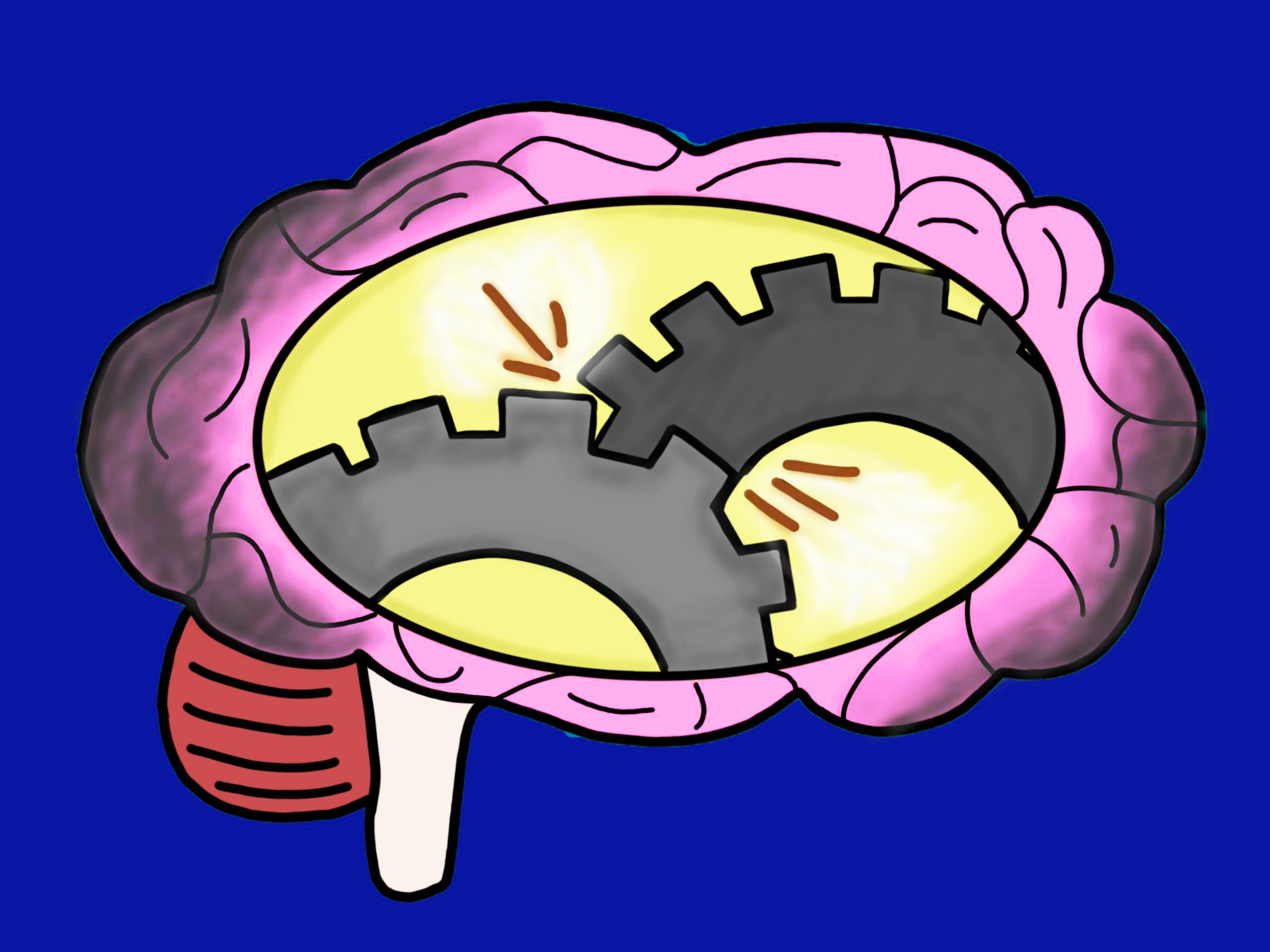Faculty, like students, are also feeling the effects of the pandemic according to a new study. Graphic by Alison Carpino.
Approximately 300 faculty members from the University of Rhode Island completed a survey for a study conducted on faculty mental health during the COVID-19 pandemic.
The study, conducted by a team of researchers from the University of Rhode Island and Lehigh University, found that lower levels of mindfulness and higher levels of impulsivity are related to greater levels of anxiety and depression among faculty due to the COVID-19 pandemic.
Approximately 300 faculty members from URI completed a voluntary online survey in May alongside faculty from Lehigh. Executive functions like the ability to plan, impulse control and behavior regulation were measured in the staff who chose to participate in the study titled, “Anxiety, Depression, Impulsivity, and Mindfulness among Higher Education Faculty during COVID-19,” by using a prescription stimulant questionnaire.
Lisa L. Weyandt, director of the interdisciplinary neuroscience program at URI, professor of psychology and lead author of the study, said the team of psychologists working on this study were interested in understanding the effects working from home in isolation has had on faculty members at universities.
Avery Beatty, a first-year doctoral student at URI, said that although this study was outside of her research interests, she felt there was a need to bring awareness to the distress university faculty members may be experiencing. One of the more general findings of the study showed faculty who reported they have previously struggled with their mental health were experiencing heightened levels of anxiety and depression due to the pandemic, according to Beatty.
“Before COVID-19, individuals who were already suffering with mental health reported having significantly higher anxiety, depression, impulsivity, reduced mindfulness and increased cannabis use and worsened eating habits,” she said. “The history of a mental illness already exacerbated the symptoms that COVID brought on with that mental illness.”
According to Beatty, one of the most important components of the study was ensuring different interventive measures were created based on the diverse populations and demographic groups represented. The relationship between symptoms of depression, anxiety, impulsivity and mindfulness were examined in faculty of differing ages, genders, ethnicities and locations. Emily Shepard, another doctoral student at URI, said this is what makes the results of the study unique.
“The results of the study are really interesting because it shows the broad impact of COVID-19 across the board, but then it also identifies specific populations who may be more at risk for adverse outcomes,” she said.
According to the study, a total of 15.3 percent of participating faculty reported elevated symptoms of depression, 19.5 percent reported higher levels of anxiety, 5.4 percent had elevated levels of impulsivity and 8 percent reported reduced mindfulness since the start of the pandemic. Latinx and Hispanic faculty also reported higher levels of substance use for both alcohol or cannabis, while female faculty members have experienced greater levels of anxiety and worse eating and sleeping habits compared to male faculty.
“These findings can be reflective of the issues that have gone on in [faculty’s] home life during COVID-19 and how a lot of women are being tasked with greater childcare responsibilities compared to men,” Beatty said. “There’s a lot of moms that are home working with their children and trying to teach them while also having a job.”
According to both Beatty and Shepard, one surprising finding from the study was that those who had the virus or knew a loved one who had it did not report significantly higher levels of anxiety or depression. However, they believe that if this study were to be sent out almost a year into the pandemic results would vary.
According to Shepard, some faculty members were distressed and discouraged with their online classes four to six weeks into the COVID-19 pandemic. These same professors will have experienced more negative mental health effects after nearly a year of COVID-19.
Beatty feels that although there are attempts being made to provide support for faculty, there can always be more, especially to accommodate those populations that are experiencing these issues at higher rates. She said that because the University expects professors to be there for their students and accept this new reality, it is important to let the administration know the toll this has taken on faculty members.
“We just want [faculty] to know that it’s okay that these symptoms are happening,” Beatty said. “Mental health matters and their behaviors matter. These faculty are parents, siblings and people too. They matter and their role at our university is crucial. We need them to be in a really good space to fulfill those roles.”

